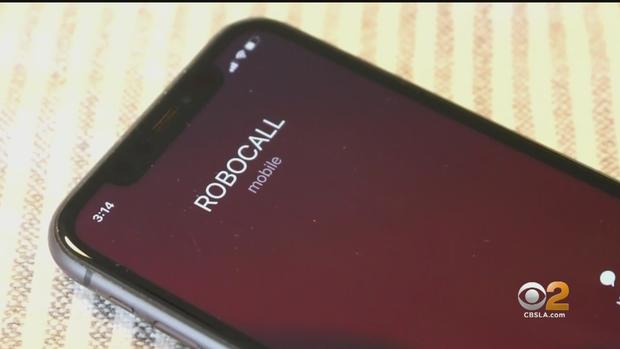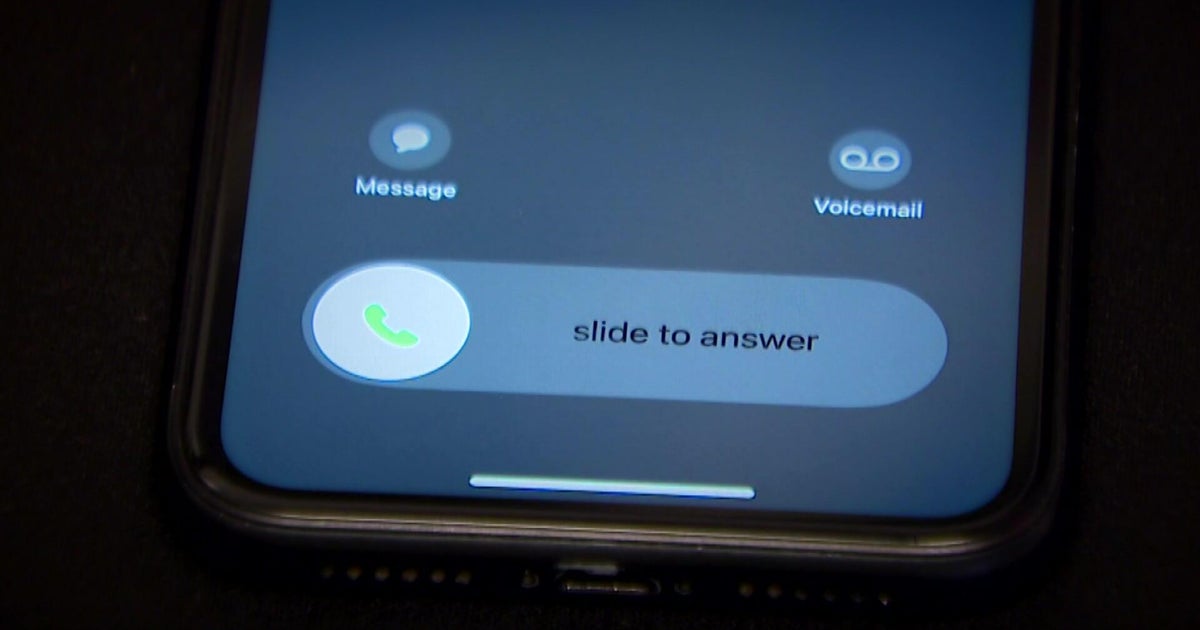2 On Your Side: Americans On Track To Receive 52 Billion Robocalls This Year
LOS ANGELES (CBSLA) — Americans have lost nearly $30 billion to robocall scams, according to a new study by spam-blocking app True Caller.
"It's annoying, my phone rings off the hook," Tamara Ehrlich said. "If I answer a couple, then I get flooded. It shouldn't be my problem to fix, they're the ones that are breaking the law."
Robocalls are annoying, relentless and illegal, but is there anything that can be done to actually stop them?
From automated dialers and recorded messages to spoofing and scammers, the calls are coming in at an incredible rate and, according to recent reports, U.S. consumers are on pace to receive more than 52 billion robocalls this year alone.
"As long as there's money, there's going to be scammers trying to get something," Ian Sherr, CNET editor-at-large said.
He said part of the problem is that as hard as people try to stop them, those on the other end of the line are trying even harder.
"What has happened is that the technology behind it has gotten even more sophisticated to the point now where I get a lot of robocalls from local numbers," he said. "Copycats of a number I would expect to come from my area or even sometimes of actual people, so that's part of what has made robocalls a really different experience these days."
But where do all of the numbers come from?
"It has a computer program that's behind it that has a list of all of these phone numbers that they believe are ones that have real human beings behind it," Sherr said. "And they gather them all together and they sell them to these scammers, and they just send out tons of phone calls, hoping maybe one of you will press yes and start talking to them."
And once people answer, those responsible for the calls know that they've got a working number. So what can people do to slow down the number of calls?
"The best thing you can do these days, unfortunately, is not to pick up the phone if you don't know who's calling you," Sherr said. "Obviously they'll leave a message if they care, but that is one way that you can really, truly protect yourself.
"Another thing you can do is that there are apps out there," he continued. "And those are also really popular in terms of identifying spam callers, and the way they do it is that you and I actually tell them when we get a spam call and then they put it in their list."
Alex Quilici is the CEO of YouMail, a visual voicemail and call blocking app that helps protect individuals' phone numbers.
"So the short answer is you need to get a call protection app on your mobile phone in the same way you have antivirus on your computer," he said. "It's designed to not let your phone ring when these bad guys call, or if they manage to get through, they leave a voicemail, we can tag the voicemail and say, 'Hey, this is a problem. This is a scam.'"
But for consumers like Ehrlich, paying for an app is not enough.
"It should be on somebody else to police," she said. "And I would like to see cell phone companies take a bigger role in making sure their customers who are paying for their service aren't inundated with spam and fraud and robocalls."
But there is some good news for consumers.
As of June 30, the Federal Communications Commission is requiring all voice providers to implement the new STIR/SHAKEN technology designed to curb the flood of robocalls.
STIR stands for secure telephone identity revisited and SHAKEN stands for signature-based handling of asserted information using tokens. The technology works by ensuring that calls traveling through the networks have their caller ID validated before it gets to an individuals' phone.
Only time will tell how well the technology works but, in the meantime, consumers might just have to get used to their phones ringing.
"It gets very annoying to have my phone constantly ringing and not have it be anything relevant," Ehrlich said.
According to YouMail, Americans received roughly 4 billion robocalls in the month of May — putting the number back at pre-pandemic levels.








